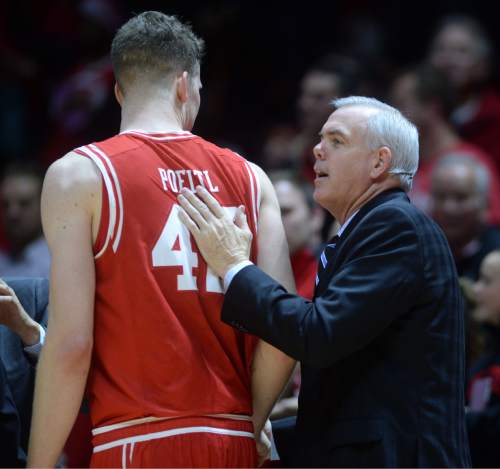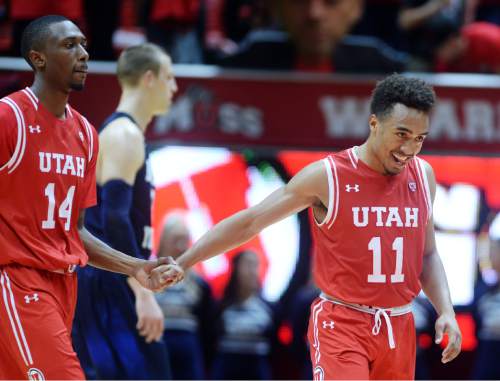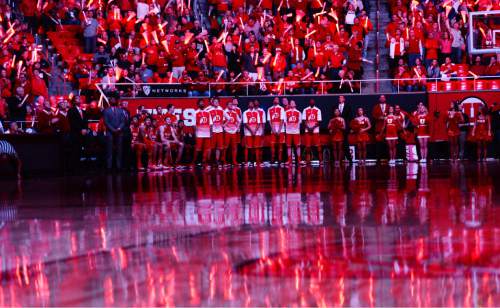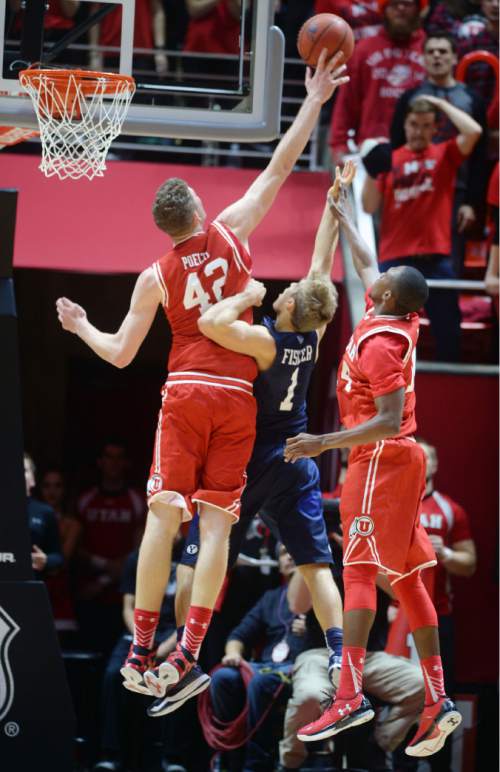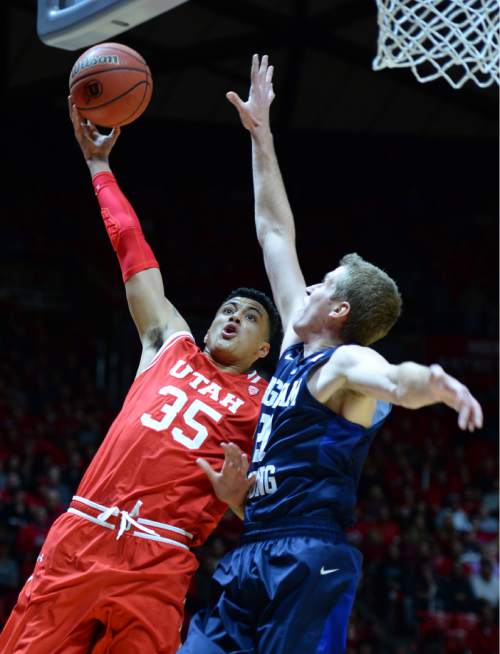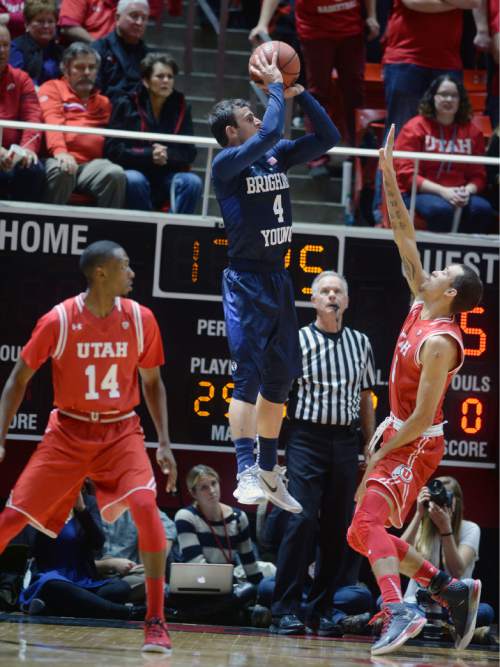This is an archived article that was published on sltrib.com in 2016, and information in the article may be outdated. It is provided only for personal research purposes and may not be reprinted.
Whether the move reflects a softening of Larry Krystkowiak's stance or Chris Hill's overruling him, the news that Utah and BYU will resume their men's basketball series in 2017 after a one-year break is a good development.
My theory: As the Utes' athletic director, Hill supported his coach's wish to interrupt the rivalry in the coming season, but recognized the overriding need to schedule the game in the future and succeeded in convincing Krystkowiak of its value. I'm pleasantly surprised that the Utes and Cougars will be meeting again during Krystkowiak's tenure, considering how adamant he was about the "toxic" nature of the rivalry when the cancellation of the December 2016 game was announced in January.
The wording of Hill's statement creates an unanswered question about how regularly the series will be played after 2017, so it is possible that he and Krystkowiak compromised on a one-time visit to Provo.
I've consistently expressed the belief that Krystkowiak's motives were pure, when he cited "player safety" as his rationale for the decision, while disagreeing with him about that being a strong enough reason. The rivalry is important in every sport, and the Utes need to schedule four strong nonconference opponents in basketball every season for the sake of building its NCAA Tournament credentials. BYU fits that description.
Gov. Gary Herbert was right when he said the game should be played, for the sake of Utahns. The rivalry produces sellout crowds in the Huntsman Center and the Marriott Center, in an era when college basketball is a tough sell to a ticket-buying audience. The 2017 game — to be played in Provo in November or December — will bring attention to both programs.
Nobody should excuse BYU guard Nick Emery for punching Utah's Brandon Taylor last December and triggering Utah's response of scrapping the 2016 game. Emery will have to live with that incident for the rest of his college career, or longer. Yet he didn't deserve to be held responsible for a lengthy interruption of the rivalry, and anything beyond a one-year break would have represented further overreaction by the Utes.
Emery's behavior will continue to be scrutinized, especially when he faces Utah in his junior and (presumably) senior seasons. That's fair. He also deserves the opportunity to show that he can handle the revved-up environment of a rivalry game, with another two years of maturity and the lessons learned from his previous actions.
Twitter: @tribkurt


